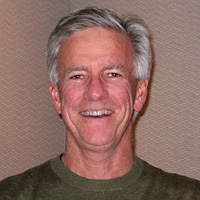We face many challenges these days but none quite like homelessness. It has an uncomfortable intimacy that we don't experience with issues such as climate change that are so vast in scale that they can easily become abstractions.
As an issue it is both a lens and a mirror. If we look closely homelessness says a great deal about what isn't working in our society. It reveals that we live in a country where it is alarmingly easy for people to fall through the cracks. In many ways the homeless are the canaries in our coalmine: their stories point us towards the places where neglect and stress are the greatest.
At the same time our reactions to the homeless say a great deal about us. Our urgent calls for action express a range of motivations: for some it is compassion, for others discomfort and for many, it is a mixture of both. Homelessness is also a sad indicator of our adaptability. The homeless improvise a life without the customary amenities that the rest of us enjoy while we, in turn, have grown accustomed -somewhat -- to their presence. In the 80's homelessness was a scourge that we wanted to eliminate. These days we approach it as a condition that needs to be managed.
As a matter of public policy, homelessness challenges some widely held beliefs. A thousand bumper stickers have urged us to think globally but act locally. But it is fair to ask how much can be expected of any one locality when the causes of a problem are systemic and national in scope. It also underscores a fundamental paradox of government programs. A homeless veteran who gets placed in a supportive housing unit disappears from our view. This success may be measurable, but it is also invisible. All we notice is the person who takes that veteran's place on the sidewalk.
So we are left with the inevitable frustration that comes from addressing outcomes instead of causes. Our country is very good at leaving people homeless. Until that changes, we can expect them to keep arriving at our doorsteps.
With a Perspective, this is Paul Staley.
